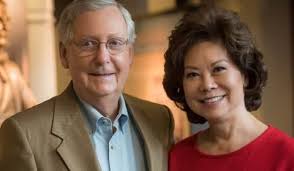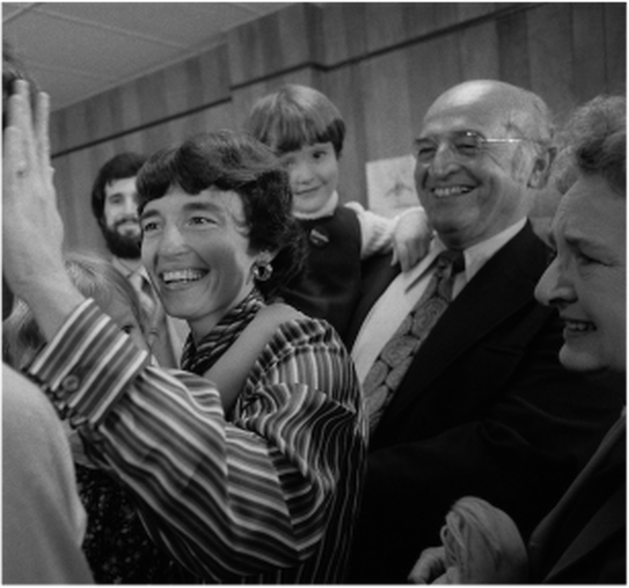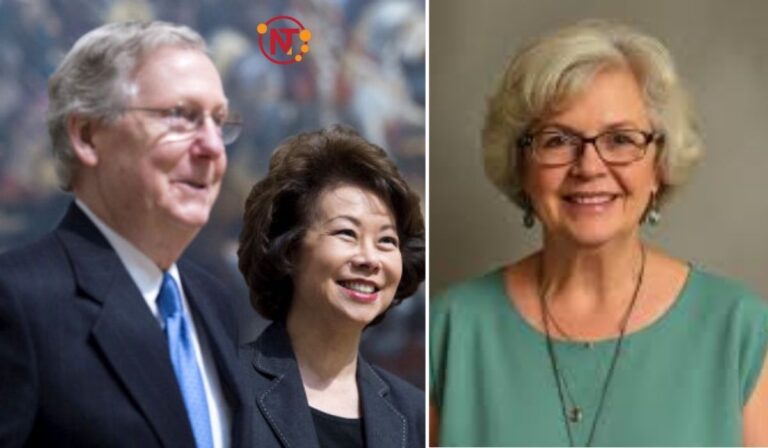Introduction
While often recognized in public discourse as the former wife of Senate Minority Leader Mitch McConnell, Sherrill Redmon deserves a distinct spotlight for her own legacy—particularly in the realm of political activism and feminist advocacy. Beyond her academic credentials and personal life, Redmon carved a meaningful political path that intertwined with some of the most influential progressive movements of the late 20th and early 21st centuries. Her quiet yet enduring work as a scholar, archivist, and feminist helped preserve the narratives of countless American women whose voices shaped the nation’s political landscape.
This article explores the political life of Sherrill Redmon, with a deep look into her associations, impact, and lasting legacy. From her early years in academia to her decades-long dedication to women’s rights, Redmon exemplifies the often overlooked but essential figures in American political history.
Quick Bio Table
| Full Name | Sherrill Lynn Redmon |
|---|---|
| Date of Birth | February 6, 1943 |
| Place of Birth | Louisville, Kentucky, USA |
| Occupation | Feminist scholar, historian, archivist |
| Known For | Director of the Schlesinger Library |
| Political Affiliation | Progressive / Feminist Activist |
| Education | Ph.D. in Philosophy, University of Kentucky |
| Spouse (Former) | Mitch McConnell (Divorced) |
Early Academic Life and Intellectual Formation

Sherrill Redmon’s journey into political life began not in a campaign office or protest march, but within the intellectual halls of academia. Earning a Ph.D. in Philosophy from the University of Kentucky, she developed a critical lens on power, gender, and society. Her scholarly background grounded her approach to politics not in partisanship, but in structural critique and advocacy for change.
Her early academic work gave her tools to analyze the intersection between gender, politics, and institutional power—a theme that would dominate her career as both a feminist and a historian. Redmon’s scholarship helped bridge the gap between theory and activism, a hallmark of second-wave feminism.
Marriage to Mitch McConnell: A Political Juxtaposition
In 1968, Redmon married Mitch McConnell, a rising political figure who would later become one of the most powerful Republicans in the U.S. Senate. Their marriage lasted until 1980 and produced three daughters. While the couple shared years together, their political paths could not have been more divergent.
McConnell’s conservative ascent stood in stark contrast to Redmon’s evolving progressive ideals. While little public documentation exists of political friction during their marriage, Redmon’s later work speaks volumes about her ideological commitments. Her post-divorce life reflects a decisive turn toward feminist scholarship and advocacy, indicating a desire to independently shape her political identity.
Schlesinger Library: Building a Feminist Archive
After her separation from McConnell, Redmon took on a transformative role as the Director of the Schlesinger Library on the History of Women in America at the Radcliffe Institute for Advanced Study, Harvard University. Her tenure there was not merely administrative—it was profoundly political.
The Schlesinger Library, already one of the foremost institutions for women’s history, expanded under Redmon’s direction to include a wide range of political narratives:
-
Voices from marginalized and underrepresented communities
-
Oral histories of grassroots feminist activists
-
Records from the National Organization for Women and other progressive groups
Redmon spearheaded the “Voices of Feminism Oral History Project,” capturing the lived experiences of hundreds of women in the feminist and civil rights movements. This body of work now serves as an irreplaceable archive of American political activism.
Respected Person : will-theron-roth
Associations with Feminist and Progressive Leaders

Sherrill Redmon’s work at the Schlesinger Library put her in direct contact with many of the feminist movement’s most influential figures. She collaborated with leaders like Gloria Steinem, Angela Davis, and Dolores Huerta, helping to document and amplify their contributions to the American political and social landscape.
These associations were not merely archival—they reflected Redmon’s deeply held political beliefs. By choosing to preserve the voices of activists and thinkers who challenged the status quo, Redmon positioned herself as an ally and advocate for progressive politics.
Her alignment with second- and third-wave feminist thinkers situates her squarely within the larger ecosystem of American leftist intellectualism, focusing on gender equity, racial justice, and social reform.
Political Impact Through Archival Work
Though not a politician herself, Redmon’s political influence manifested in her ability to preserve and highlight the grassroots narratives that often get lost in mainstream histories. The feminist movement, in particular, owes much to archivists like Redmon, who took the time to ensure that everyday activists were not forgotten.
The Voices of Feminism Oral History Project didn’t just capture elite voices—it democratized memory. By interviewing lesser-known activists, Redmon ensured that the full spectrum of feminist politics—from urban organizers to rural educators—was preserved for future generations.
This act of curation was inherently political. It challenged the notion of whose stories deserve to be told, directly confronting systemic silencing in both academia and media.
Legacy in Women’s Rights Advocacy

Redmon’s commitment to women’s rights extended beyond her archival work. She regularly spoke at feminist conferences and served on advisory boards for progressive organizations. Her advocacy wasn’t performative—it was rooted in her lived values.
Her long-term dedication helped broaden public understanding of what feminism means in an American context, moving it beyond the simplistic narratives often portrayed in popular culture.
Her legacy lies in helping to ensure that feminism was recognized not just as a social movement but as a political force with deep roots in American history and ongoing relevance today.
A Word You Most Known : Decoding Đeman
How Sherrill Redmon Helped Shape Feminist Political Memory
Preserving history is not a passive act—it is an act of power. Redmon’s meticulous dedication to recording the feminist struggle ensured that future historians, activists, and policymakers could learn from the past.
Through her political memory work, Redmon helped establish a foundation upon which new generations of feminists and political thinkers could build. Her role in shaping the feminist narrative places her alongside historians like Gerda Lerner and political thinkers like bell hooks in terms of intellectual influence.
Influence on Intersectional Feminism
Redmon’s later years at Radcliffe demonstrated a growing awareness of intersectionality—a term coined by legal scholar Kimberlé Crenshaw to describe how race, gender, and class intersect in shaping individual experiences. Redmon made a concerted effort to include Black, Latina, Indigenous, and queer voices in the oral history collection.
This broadened focus not only reflected changes in the feminist movement but also reaffirmed Redmon’s progressive values. She recognized that feminism without inclusivity risked becoming elitist and detached from the struggles of marginalized groups.
Political Legacy Beyond Partisan Labels
Sherrill Redmon defies easy political classification. Though aligned with many progressive ideals, she didn’t operate as a politician or lobbyist. Her politics were embedded in her actions—preserving voices, amplifying marginalized narratives, and fostering inclusive intellectual spaces.
In many ways, her political life was more cultural and intellectual than legislative. But this should not undermine its significance. Political change begins with shifting mindsets and expanding public awareness—both of which Redmon championed through her work.
5 Point Breakdown: Key Political Contributions
-
Directed the Schlesinger Library, one of the most prominent centers for women’s political history in the U.S.
-
Led the “Voices of Feminism” Oral History Project, preserving stories of activists across racial, social, and political lines.
-
Promoted intersectionality within feminist archives, recognizing the need for diverse narratives.
-
Collaborated with major feminist figures such as Gloria Steinem and Angela Davis.
-
Spoke publicly and advised organizations dedicated to social justice and gender equality.
Related contant : wiki/Mitch_McConnell
Final Thoughts: A Quiet but Powerful Force in Political History
Though Sherrill Redmon never held public office or led political campaigns, her impact on American political life is undeniable. Through her archival work, she preserved the voices of women who fought, organized, and sacrificed for change. Her scholarly activism reminds us that politics is not only practiced on Capitol Hill—it is lived and recorded in communities, libraries, and classrooms.
By curating the past, Redmon shaped the future. Her story underscores the vital role of intellectuals and historians in fostering democratic values, gender equity, and cultural memory. Sherrill Redmon’s political life may have unfolded behind the scenes, but its echoes are heard wherever feminist and progressive ideals continue to thrive.
Frequently Asked Questions (FAQs)
1. Was Sherrill Redmon involved in politics directly?
No, Sherrill Redmon was not a politician in the traditional sense. Her political influence came through her work as a feminist historian and archivist, particularly during her time at the Schlesinger Library, where she helped document the stories of women involved in political and social activism.
2. What is the “Voices of Feminism Oral History Project”?
It’s a major oral history initiative led by Redmon that collected interviews with women from various backgrounds who were involved in feminist, civil rights, and social justice movements. The project captures firsthand accounts and serves as a vital resource for scholars and activists.
3. Did Sherrill Redmon’s political views differ from Mitch McConnell’s?
Yes, Redmon’s political views are considered progressive, especially compared to McConnell’s conservative positions. After their divorce, Redmon’s work in feminist advocacy and women’s history showed a clear alignment with left-leaning ideals.
4. What role did Sherrill Redmon play in feminist movements?
While not a front-line activist, Redmon supported feminist movements by preserving their histories and amplifying their voices. Her archival and scholarly work has been instrumental in documenting and legitimizing feminist contributions to political change.
5. Why is Sherrill Redmon important to American political history?
Redmon is important because she helped preserve the narratives of feminist and social justice movements that have shaped modern American politics. Her work ensures that future generations understand the contributions of women and marginalized communities to political progress.


